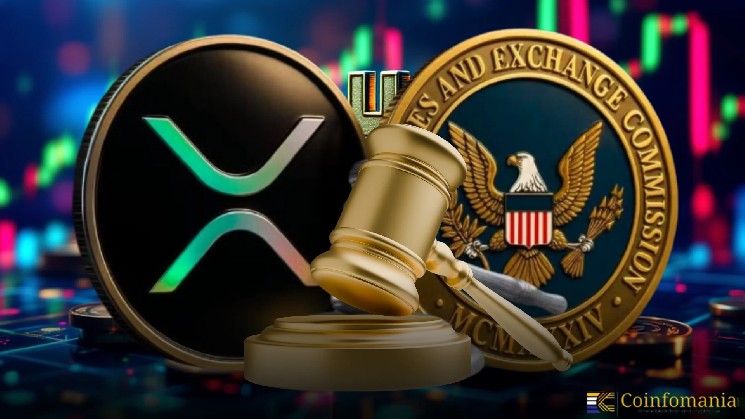The head of Ripple legal claims that the U.S. SEC ceased to appeal crypto enforcement cases. Ripple Track posted a video clip by Stuart Alderoty who provided the update. It overturns a legal fight that has lasted several years, which started in December 2020. Markets reacted quickly. XRP increased and the volume of trade surged. The relocation eliminates a significant legal ambiguity to both Ripple and certain colleagues.
🚨 JUST IN: Ripple’s Chief Legal Officer Stuart Alderoty drops an absolute bombshell 💣
“The SEC has officially dropped EVERY case against crypto companies in the U.S.” ⚖️🔥
This marks the end of the war on crypto and the beginning of a new era for innovation, adoption, and… pic.twitter.com/SrThkTg1Sb
— Ripple Track (@RippleTrack) October 8, 2025
What Alderoty said
Alderoty reported that SEC discarded appeals against Ripple and other crypto companies. He termed the step as a significant change in regulation. He linked the move to larger policy and political reforms and new SEC efforts that strive to oversee innovation. Alderoty emphasized that the reduction of appeals reduces the risk in the judicial system and releases companies to develop.
Market Update
XRP traded near $2.50 on Oct 8, 2025. At that price, XRP would be about $140 billion (that is, 19.1B XRP) on the market cap.
In October 8, 2025, XRP had a 24-hour trading volume of approximately 10 billion. The larger crypto context depicted good ETF flows on the previous day, which saw Bitcoin spot ETFs netting 876M on Oct 7 (SoSoValue), which made the market sentiment better.
The appeal dropping will save Ripple the legal expenses and uncertainty. Ripple had made previous settlements and fines the initial case involved money fines and operation costs. The team of Alderoty estimates that it will save on litigation costs and accelerate commercial rollout. The product development no longer requires a long-term appeal to be made by Ripple.
Knock-on Effects
This action by the SEC is the signal of more lenient, experiment-friendly regimes by the U.S. regulators. To allow projects under supervision to test on-chain offerings, officials cited “Innovation Exemptions” as a basis. Such strategy can lure startups into the U.S. markets again. The ruling also eliminates one of the largest barriers to possible financial products such as XRP ETFs as market analysts observe.
Ripple Strategic Implications
On-Demand Liquidity (ODL) can be scaled more securely by Ripple in the markets where XRP was considered questionable by regulators. The legal status of Ripple can accelerate the collaboration with financial institutions and payment providers. The SEC filings to the people are not irrelevant. Participants of the market must verify the information in official notices of SEC. The regulatory policy is open to change; the supervision is in place. Lack of attraction does not amount to regulatory approval. This may be followed by enforcement and rulemaking.

